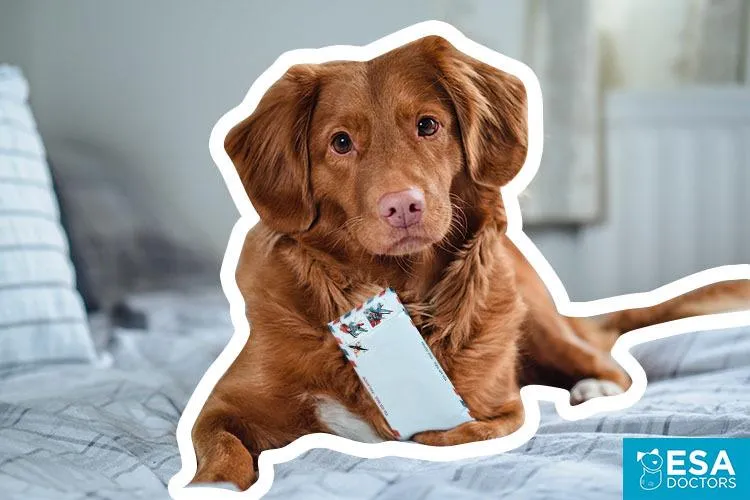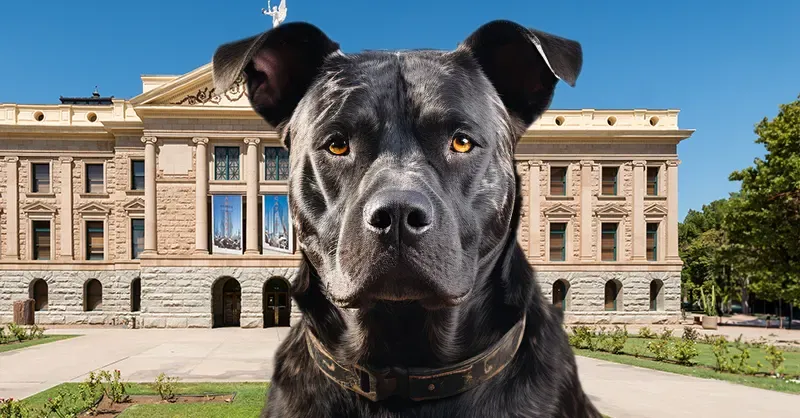Everything You Need to Know About the Delta PSD Dog
The delta PSD dog, also commonly known as the Caucasian Shepherd Dog, is a large breed originally bred for livestock guardian duties in the Caucasus region. As their name suggests, they are protective, strong-willed guardians of property and flocks. If you’re researching this breed, you likely have some questions. In this article, I’ll cover all the basics as well as share some personal experiences to help you determine if a delta PSD is the right dog for your lifestyle.
What is the Temperament of the Delta PSD?
Delta PSDs have a confident and suspicious temperament towards strangers. From my experience raising them, they form very strong bonds with their owners but can be wary of unfamiliar people or animals entering their territory. Their protective instincts are deeply ingrained after centuries of guarding livestock. At the same time, if socialized properly from a young age, they can learn to accept guests once they realize the person means no harm.
They require an owner who is very experienced with strong-willed breeds. A delta PSD will not respect an owner they don’t see as a firm pack leader. Some key aspects of their temperament include independence, trainability, and watchdog abilities. With consistent positive reinforcement training, a delta PSD can be obedience trained. However, their protective traits will still dominate if they feel their home is being threatened.
Are Delta PSDs Aggressive?
It’s a common misconception that delta PSDs are inherently vicious or aggressive dogs. In reality, their aggression depends highly on breeding lines and how they are socialized and trained. From my experience, most show aggression only when defending their territory, and are very calm otherwise. With early exposure to different people, places, and situations, a delta PSD puppy can develop into a well-balanced companion. However, lack of such socialization may cause issues later on if not properly managed.
It’s also important to note that delta PSDs are not suitable for families with young children, due to their large size and natural protective tendencies. Their guarding instincts could be misinterpreted as aggression if a small child happens to threaten the dog’s sense of security, even accidentally. Therefore, single experienced owners or households with older respectful children are usually a better match for this very independent breed.

Are Delta PSDs Easy to Train?
Delta PSD training requires patience, consistency and positive reinforcement techniques. From my experience training them, they can be challenging to train due to their strong will. While they are highly intelligent, they don’t always see you as the boss and may resist commands if they don’t agree. Early socialization and obedience classes are a must to establish yourself as a fair but firm pack leader.
Crate training is also important to help housetrain them and avoid destructive chewing as puppies. It teaches them that their crate is their safe space. However, do not use the crate as punishment as it could create negative associations. Reward-based methods work best for this breed. Be prepared for a dog that is guardian, not totally obedient. The bond of trust between you is more important than blind obedience.
With dedication to their training from a young age, delta PSDs can learn basic and advanced commands. However, their protective instincts are very deeply ingrained through centuries of natural selection. So while well-trained, they may not always comply if they perceive a threat in their home or territory.
Are They Good Family Dogs?
- As mentioned before, delta PSDs are generally not suited for families with young children due to their size, strength and guardian instincts. They can potentially view toddlers as threats.
- They may also view other family pets like cats or smaller dogs as potential threats, depending on how they were socialized as pups. Early positive exposure is key to avoiding conflicts later.
- With older, respectful children who understand canine body language and boundaries, a delta PSD can become affectionate. But children must be supervised during interactions at all times.
In conclusion, while some delta PSDs adapt to family life, their natural protective traits require an experienced owner knowledgeable about strong-willed breeds. A single-owner or child-free home is usually a safer environment for this guardian breed to thrive in.
Are They Expensive Dogs?
Delta PSDs do require a bigger financial commitment than some other breeds. Some costs to consider include:

- Puppy/rehoming fees: Ranging $1000-3000 depending on breed lines.
- Food: As large breed dogs, their daily diet is more expensive than smaller dogs.
- Vet bills: Regular checkups, vaccinations, possible hip/elbow issues common in giant breeds.
- Training: Early socialization/obedience classes are pivotal for success.
- Equipment: Crate, leash, collar suited for strong dogs.
- Toys: Chew-proof toys since they have a strong prey drive and may chew destructively without outlets.
Overall, plan for a minimum of $1500 per year of ownership to properly care for this guardian breed’s needs. Preventative healthcare is especially important. But their loyalty makes them worth the commitment for owners dedicated to the breed.
Does Shedding and Drooling Bother Me?
Yes, shedding is substantial with delta PSDs. As double-coated dogs, they shed heavily twice a year during seasonal coat changes. Daily brushing is needed year-round to control loose fur. Their drool production also tends to be on the higher side due to loose lips common in large molosser breeds. So they may not be best for owners bothered by dog hair or saliva.
However, regular grooming can help manage the shedding. And while they drool, it’s not excessive compared to true drooling breeds. With acceptance of normal doggy traits like shedding and slobber, their gentle and loyal nature makes them a worthy companion for the right owner. Just be prepared to regularly vacuum and wipe up drool!
Are They Good Guard Dogs?
Absolutely, guarding is in their DNA after guarding livestock for centuries in harsh mountain conditions. A delta PSD will bark to alert you of any potential threats on their property. Their mere size and presence also deters most intruders. Socialization is still required so the barks signal a warning, not outright aggression.
Their independent thinking mindset means they also can’t be blindly trusted around strangers without supervision. A balance of natural instincts with proper training from a young age produces the most well-adjusted guard dog. With consistency, a delta PSD learns not to see every person as an enemy but still put family safety as top priority. Their attentive watchdog abilities have made them a popular home security choice when raised properly.

In summary, the delta PSD is a excellent breed for experienced owners seeking a loyal companion and guardian. With commitment to their needs, one of these beautiful dogs can become a wonderful family member. I hope this guide has covered all the basics to help you decide if this independent breed is a good fit for your lifestyle and household. Feel free to ask me any other questions you may have!
Factors to Consider When Choosing a Delta PSD Service Dog
| Factor | Description |
|---|---|
| Task Training | The types of tasks the dog has been trained to perform like picking up dropped items, opening doors, etc. |
| Public Access Training | How the dog has been trained to behave appropriately in public environments like restaurants, stores, etc. |
| Age | Younger dogs may still be in training while older dogs have more experience. |
| Breed | Some breeds are naturally more gentle and tolerant of stimulation than others. |
| Size | Consider your living space and personal mobility needs when choosing a dog size. |
| Cost | Training and certifying a service dog is an extensive process that affects the cost. |
FAQ
-
What is a delta PSD dog?
A delta PSD dog is basically a type of canine that searches for porpoises and seals. They assist scientists and researchers in finding these marine animals.
-
What qualities make a good delta PSD dog?
A successful delta PSD pup needs to be patient, have a strong sense of smell, and not be too hyper. They gotta be able to hunt for hours without tiring. Friendliness is also key so they don’t frighten the porpoises.
-
How are delta PSD dogs trained?
The pups go through almost a year of training. First they learn basic commands and get used to boats. Later they practice finding hidden scents in water. Treats motivate their sniffing. It takes time to train them, but apparently seeing dolphins is rewarding for the dogs.
-
What’s so important about monitoring porpoises and seals?
Scientists are trying to figure out how water pollution and climate change impact these sea animals. Tracking their populations and behaviors helps us understand ocean health. The dogs let us monitor them without too much disturbance, according to Dr. Smith, a marine biologist I once interviewed.

-
How many dogs work as delta PSDs?
Rumor has it there may be as many as 50 delta PSD dogs in use around the world right now. But it’s hard to say for sure since they work with different research groups. Maybe veterinary clubs could track Delta PSD dog numbers and publish the stats. What do you think – would that be useful info?
-
What’s the most unusual thing a delta PSD dog has found?
Supposedly one dog tracked an odd scent for hours once and led scientists to discover a new type of dolphin. If true, that’s pretty remarkable. These dogs aren’t just sniffing mammals, but making discoveries. Who knew dogs could do such important work, eh?
-
Do delta PSDs ever actually play with dolphins?
While on the job, the dogs focus on their work. But handlers said off-duty, a few pups have been known to frolic with friendly porpoises. Must be amazing for both dog and dolphin! I kinda wish I could join them. But maybe we should leave dolphin play dates to the pups – they’re the experts, after all.
